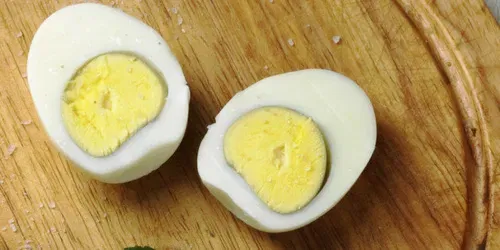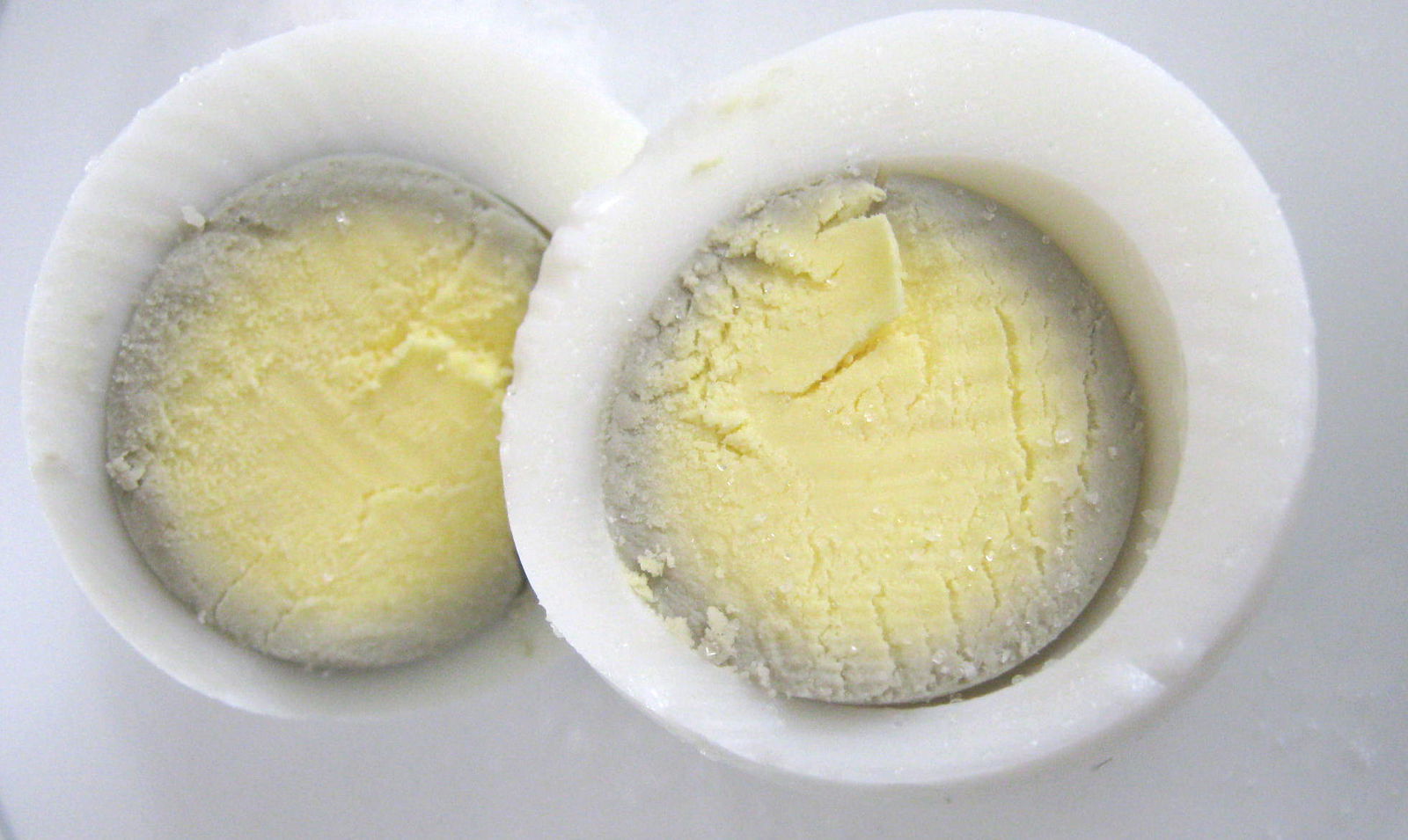
Boiling eggs sounds simple, but anyone who’s peeled a hard-boiled egg to find a strange green ring around the yolk knows it’s not always straightforward. While the egg is still safe to eat, the green ring is often seen as a sign of overcooking — and for many, it can be unappetizing. So how long should you actually boil eggs to get the perfect result? And how can you avoid that off-putting discoloration? Let’s break it down.
🕒 How Long to Boil Eggs

The answer depends on how you like your yolks — soft, medium, or hard. Here’s a simple guide for boiling large eggs:
- Soft-boiled eggs (slightly runny yolk): 6–7 minutes
- Medium-boiled eggs (jammy yolk): 8–9 minutes
- Hard-boiled eggs (fully cooked yolk): 10–12 minutes
Start with eggs in a saucepan filled with cold water. Bring the water to a boil over medium-high heat. Once it reaches a boil, turn off the heat (or reduce to a gentle simmer), cover the pot, and start timing.
🟢 What Causes the Green Ring Around the Yolk?
That greenish-gray ring is caused by a chemical reaction between sulfur and iron in the egg. When eggs are cooked for too long or at too high a temperature, sulfur in the egg white reacts with iron in the yolk, forming ferrous sulfide, which appears green.
It’s completely harmless and doesn’t affect the flavor much, but it can be visually unappealing — especially if you’re preparing deviled eggs or salads.
❄️ How to Prevent the Green Ring

Don’t overcook the eggs
Stick to the recommended time: 10–12 minutes is plenty for hard-boiled eggs. Overcooking them beyond 13–14 minutes increases the risk of discoloration.
Cool the eggs quickly
Once time is up, transfer the eggs into a bowl of ice water or run them under cold water for several minutes. This stops the cooking process and helps prevent the green ring from forming.
Use fresh, but not too fresh eggs
Extremely fresh eggs can be harder to peel, but eggs that are too old may have air pockets that affect cooking. Aim for eggs that are about a week old for best results.
Avoid a rapid, rolling boil
Too much agitation can crack the shells and increase the temperature unevenly. A gentle boil or even steeping in hot water after boiling is more effective.
🍳 Bonus Tips

If you’re boiling a large batch, try using a steamer basket or egg cooker for consistent results.
Label your eggs by doneness if you’re meal prepping (e.g., soft vs. hard) to avoid mixing them up later.
Want perfectly centered yolks? Gently rotate the eggs during the first 2–3 minutes of boiling.
🥚 In Summary
Boiling the perfect egg is a simple task — once you understand the science behind it. To avoid that green ring around the yolk, the key is timing and cooling. Boil your eggs just long enough to cook them through, then chill them immediately. With a bit of practice, you’ll get restaurant-quality boiled eggs every time.
Now you can enjoy your eggs with confidence — no green surprises inside.

















